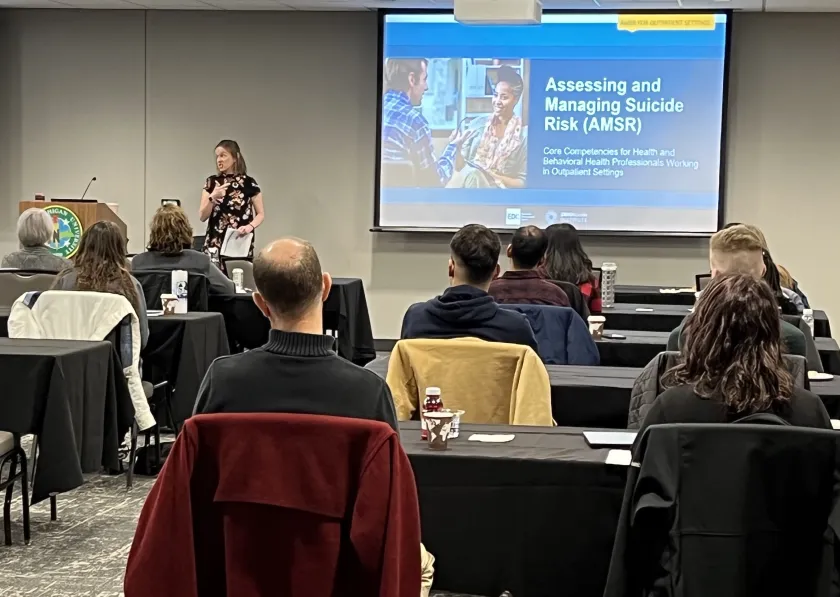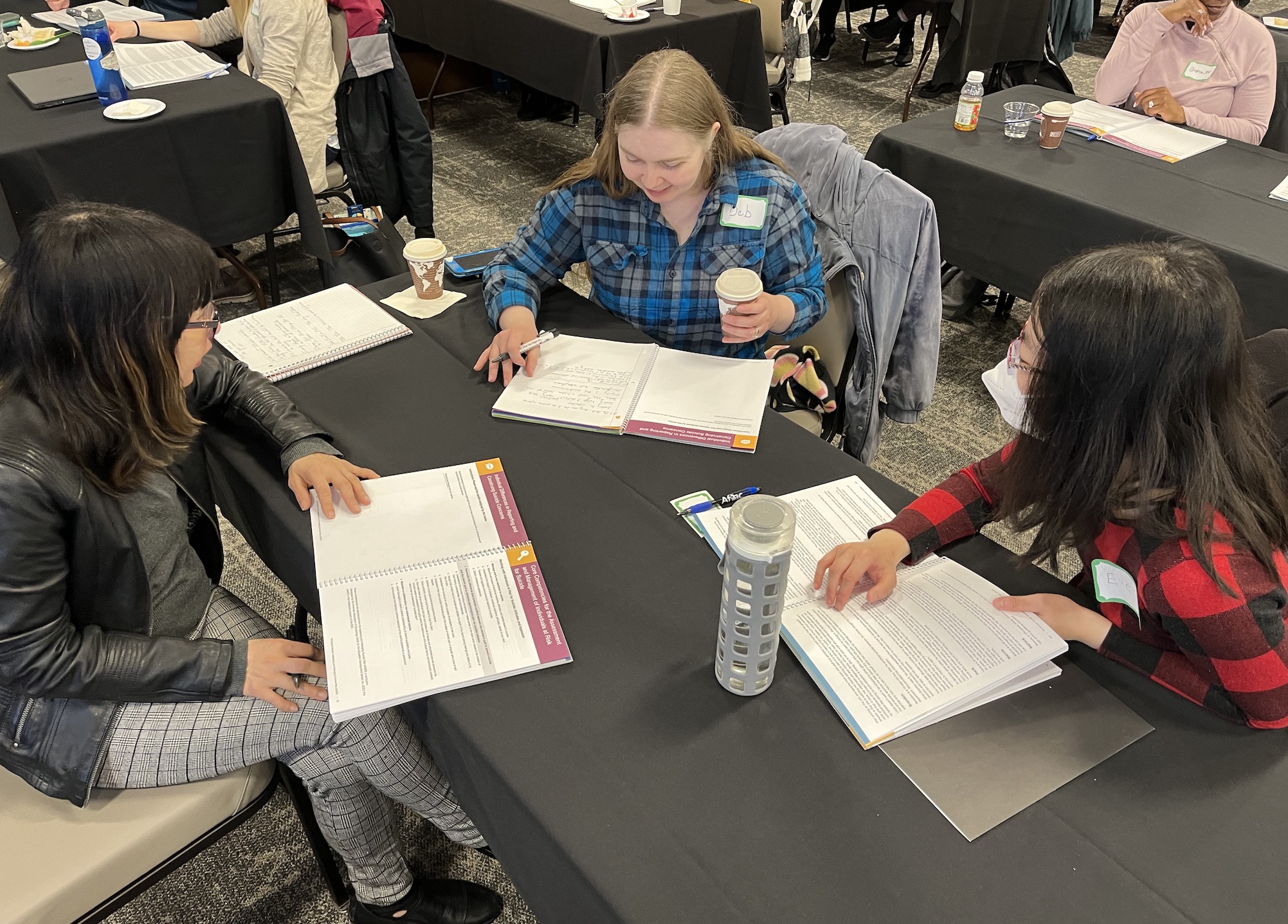Northern Michigan University social work students recently had a rare opportunity to participate alongside faculty members and community clinicians in a full-day Assessing and Managing Suicide Risk (AMSR) training on campus. One of the students used her AMSR handbook earlier this week to identify the level of risk for one of her teenage clients at her field placement location.
“It was so helpful in providing direction to both of us,” said Angie Kates, who will graduate April 30. “It made me feel confident that I was supporting the client and that they were going to remain safe. I found the teenager responded really well and was excited about being engaged in their own safety planning and healing. As they told us during the training, it's important to confront suicide and not skirt around it. People are desperate to talk about it with someone.”
NMU professor Sarah Carlson said AMSR provides a framework for making personalized risk-mitigation and treatment decisions, and is firmly grounded in the latest research and best practices related to suicide care in a variety of settings.
“We were so excited to be able to offer this opportunity to our students, as this level of training in suicide prevention prior to graduation is unique,” Carlson said. “All of these students are currently embedded in their required field placements and some have already encountered individuals contemplating suicide. Getting them trained early will increase their confidence in dealing with such situations and their ability to successfully intervene. Hopefully that will reduce the risk of suicide among people under their care.”
Carlson said suicide rates, especially among youth, have increased in recent years. According to the Centers for Disease Control, suicide is the third leading cause of death for teens 15-19.
“The risk goes up when you know someone who dies by suicide; it's the contagion effect, especially in small communities,” Carlson said. “Before I started teaching at Northern, I worked with kids whose attempts or ideations were very much related to interactions on social media. But I was 10-12 years into my career before I had this type of training. Any time we can help our students increase their confidence level in a high-risk situation and develop concrete skills through a research-grounded approach before they enter the field is huge.”
More than half of the 45 attendees at the training were NMU students. Several recent graduates of Northern's Master of Social Work (MSW) program also participated. Ashley Jenema of Pathways led the session, which was funded by a grant distributed through the Michigan Public Health Institute.
AMSR provides a structure for the clinical provider that can be used in the development of a collaborative treatment and safety plan. The training also provides a language for the clinician to use with non-clinical staff who are also involved in the care that the individual is receiving.
“A couple of students were getting trained in this model of assessing and managing suicide risk through their field placements at Pathways, and it was piquing the interest of other students,” Carlson said. “Because it's hard to fit this into the curriculum unless it's a specific course, I explored the possibility of bringing a trainer to campus. It would have cost students $150 to participate, but then I found out about the grant, which covered everything but food.”
Kate Dohnal is one of the master's candidates placed at Pathways. She plans to remain there after her late-April graduation.
“I use AMSR all the time,” Dohnal said. “As an emerging social worker already practicing therapy, it's important to screen for suicide in most assessments you're doing with clients because it presents in many ways and is a very complex thing. It's good to inquire, whether or not you think the person is actively suicidal. Having training and materials to aid in your confidence really helps when you're doing therapy.”
According to the Education Development Center, which has trained more than 80,000 professionals in AMSR, 91% of participants reported an increase in confidence developing a suicide risk formulation for the people in their care. The same study found that 96% of participants were satisfied with their AMSR training experience.
Carlson reported that the March 18 session at NMU generated numerous positive comments from participants. She said the hope is to pursue additional grants to make it a consistent opportunity for NMU students like Kates, before they fully embark on their careers.
“When you first start out as student in a field as broad as social work, there are a lot of things you're afraid of and feel ill-equipped to handle,” Kates said. “There are some things we foundationally need in terms of skill sets. Suicide risk assessment is really important. They told us during the training to ‘mark these pages in the handbook; you'll use them a lot.' I already have, and it has proved to be an awesome tool.”
Kates plans to continue working at Suunta Integrative Health in Marquette—the site of her field placement—after graduation. Other field placement locations for NMU social work students include Great Lakes Recovery Centers, area schools and private therapy practices.


